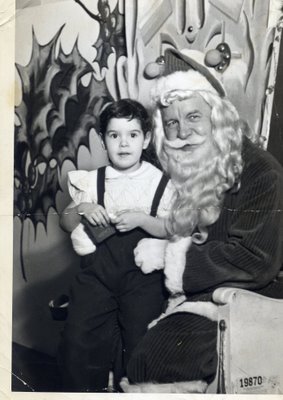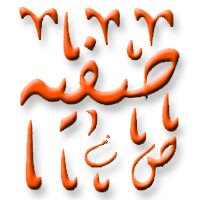
My husband and I had gone to the masjid for a speaker’s program. It was the first time that he had invited me to the masjid since our marriage a year or so earlier. We had met and married while we were both working as substance abuser counselors in a rehabilitation center. We couldn’t have been more different in the beginning, as we are from entirely different backgrounds – he is black and I am white, he is Muslim and I was Jewish. Although he hadn’t asked me to become a Muslim prior to our marriage, he did give me silent dawah by his excellent example. He had an extensive Islamic library, and because I was an avid reader, I naturally read a lot of his books. I also observed his modest behavior, watched as he made salat five times a day, went to Jumah prayer on Fridays, and fasted during the month of Ramadan. So, it was natural that I would develop an interest in his religion.
When we arrived at the masjid, he pointed out the entrance to the women's section - downstairs in the basement. We agreed to meet in the parking lot after the program was over.
OK, I can do this, I thought to myself as I entered the dark dank hallway and walked down the steep steps,
I’ve never had trouble making friends before. I had always enjoyed “multi-cultural” situations and looked forward to the evening. My husband had suggested that I wear something “modest” for the occasion. I ran my hands down over my long-sleeved dress, straightening and smoothing it out. I felt confident that the women at the masjid would approve of my appearance. However, when I arrived at the bottom of the stairs and walked through the door marked “Sisters”, I could immediately feel it in the air: thick tension, suspicion, estrangement, confusion … every veiled head turned in my direction and the Muslim women stared at me as if I had two heads. I stood frozen in place in the entrance way, staring back at them. I had never seen so many Muslim women together in one place. Most of them wore the traditional hijab, but two women peered out at me through head coverings that revealed only their eyes. A few others sat with their scarves draped over their shoulders. When they saw me, they pulled them up over their heads. But then one of them got up from where she was sitting, approached me, and introduced herself as Sister Basimah.
At least this one has a welcoming look on her face.“Hi,” I said. “My name is Sharon. I’m here for the speaker’s program.”
“Is anyone with you?” she asked.
“My husband is upstairs,” I replied.
“Oh! Your husband is Muslim?” she asked.
“Yes. Yes, he is,” I said.
“Alhamdulillah,” she said. “Come over here and sit with us.”
She led me to a table where three other women were seated. They were the most beautiful exotic women I had ever seen. Right after she made introductions, I forgot each one of their names, which were equally exotic. Sister Basimah then got up and went to greet more people that had arrived.
“Where are you from?” one of the women asked me.
I replied that I was an American of Eastern European heritage, born in New York City.
“Where’s your husband from?” was the next question.
“He’s from America.”
“But,
where is he from?
“Philadelphia,” I replied.
“No, I mean, what country is he from?”
“He’s American, born in the United States, he’s African-American, from Philadelphia,” I replied, thinking that there was a language barrier. I would later learn that most of the Caucasian women in the masjid were married to Arab men.
“Hmmm,” they all said in unison and they cast their lovely gazes downward.
“Are you thinking of becoming a Muslim?” another one asked, looking up at me with a beaming expression on her face.
“No,” I replied, “I’m Jewish.” Well, I wish you could have seen the look on their faces. As soon as it was politely possible, the topic was switched.
“Are your children Muslims?” one of them asked, returning to the interrogation.
“No.” I replied, “I don’t have any children.” That was it; their attempts to find a common ground with me had failed. They smiled at me and then something incredible happened for which I was not prepared: the conversation turned to Arabic.
I continued to sit with them at the table. They mostly spoke to each other in Arabic, and I mostly smiled. As more women would join the table, they would introduce me in English, “This is Sharon. She’s Jewish.” Then they resumed speaking in Arabic. When the program began, the women gathered in the prayer room and everyone sat down on the plush carpeted floor. But after about five minutes, the women started chatting to one another, all but drowning out the sound of the program which was being delivered over a stereo speaker from upstairs. After the program was over, the women went into the kitchen to prepare food. Sister Basimah came over and told me to sit and make myself comfortable until it was time to eat.
“But, let me help you,” I offered.
“No! You are our guest. Some American sisters have arrived. I’ll introduce you,” she replied.
Sister Basimah motioned to one of the women on the other side of the room. She came over and the two women kissed each other on the cheeks and greeted each other with a cheerful Arabic expression. Then they both turned to look at me.
“This is Sharon. She’s Jewish. Will you keep her company until we eat?” Sister Basimah said to the other woman.
“Oh, yes!” she replied. “Hi Sharon, I’m Sister Arwa!”
Sister Arwa and I sat down and began to get acquainted. I asked her questions such as how long had she been a Muslim, was she married to a Muslim, etc. Then she dropped the bomb.
“Why did you kill Jesus?” she asked me.
“What?” I replied. My face must have shown my shock and disbelief.
“I mean” she inquired again, this time softening her question, “why did the Jews kill Jesus?”
I couldn’t believe what I was hearing! I was astonished and rankled by the question. I could tell by the innocent look on her face that she really wanted to know. Maybe she never met a Jewish woman before, and this was her first real opportunity to get an answer to her burning question. When I was first introduced to her, I welcomed her company; after all, she was the first American I had seen that evening. Now, I wanted to get up and run from the table. Then the anger set in.
Giving her a baleful look, I replied through clenched teeth, “We did not kill Jesus. The Romans did!”
She returned the look of a wounded animal. Her lips opened to say something, but before she could reply someone called to her.
“Excuse me,” she said, “I’ll be back.” I could hear the relief in her voice.
A group of African-American sisters arrived at the masjid and I spent the remainder of the evening in their company. Before I left to meet my husband, Sister Basimah gave me her telephone number and encouraged me to call and arrange a time to visit with her.
I did call her, and we developed a beautiful relationship. She told me all about Islam and Allah. It was from her that I learned that no one killed Jesus! I learned that Allah raised him up unto Himself. She knew I was interested in Islam, and could sense that my heart was searching and yearning for spiritual peace. One evening while my husband and I were visiting her home, she came right out and invited me to Islam. The turning point occurred when she explained that all my sins would be forgiven when I came to Islam. She said that I would be reborn, like a newborn baby, with no sins, with another chance. I broke down and cried. I wanted another chance to get right with Allah. You see, I had a very checkered past. I always loved God, but I got lost in life. We asked her husband to help me say the Shahadah. When I told my husband what I was about to do, he was shocked and happy at the same time. He asked me if I was really sure about my decision, like he couldn’t believe what he was hearing. I responded that I was never surer about anything in my entire life. There was no internal battle, no fears or doubts. After I said the Shahadah, Sister Basimah’s husband said, “Mabrook! You’re now a Muslim!”
When we returned home, my husband gave me a gift of my very own Qu’ran and a summarized Sahih Al-Bukhari. Before I left Sister Basimah’s home that special evening, she gave me a gift of a booklet about modesty for Muslim women. She also gave me a prayer rug, a prayer dress, and a hijab. I have worn hijab since that day, Alhamdulillah. I have never taken it off, even after the dreadful days following September 11th.
When I became a Muslim in July of 1998, my father denounced me once and for all. He had been very upset with me anyhow for marrying a Muslim, and refused to recognize my husband as his son-in-law.
“But Sharon, those people hate us!” he cried.
All efforts to explain the difference between the peaceful religion of Islam and the political struggle between the Palestinians and Israelis fell on deaf ears. Never mind that my father was the first one in his family to marry outside of Judaism. My mother had been a practicing Catholic when they married. To add “insult to injury” in my father’s eyes, my husband was also African-American. Prior to September 11th, most Americans thought of Malcolm X whenever Islam was mentioned. Many other family members also made it known how disappointed and frustrated they were with my decision to marry a “Black Muslim”. My father died in August of 2001, one month before the events of September 11th. At the request of my father’s wife, my family did not tell me that he had died until after his funeral was over. Did they fear that I would show up in the synagogue dressed in garb accompanied by my black husband!
We are taught that the religion of Islam is for all people and for all time. It shouldn’t matter whether a Muslim is Egyptian, Pakistani, American, Saudi, Indonesian, or Palestinian. It shouldn’t matter whether he is black, white, red, or yellow. It shouldn’t matter whether he speaks Arabic, English, Spanish, or Urdu. Our cultural diversity should not divide our ummah. Allah tells us in the Qu’ran that, “We created you in nations and tribes so that you may know one another” (49:13).














